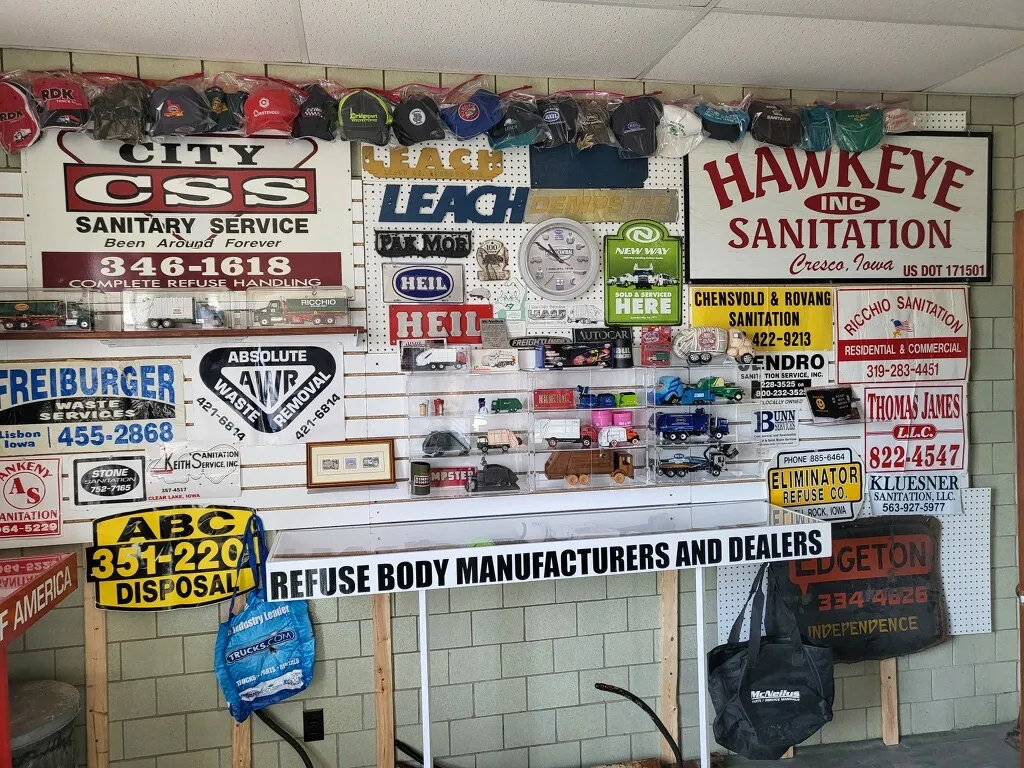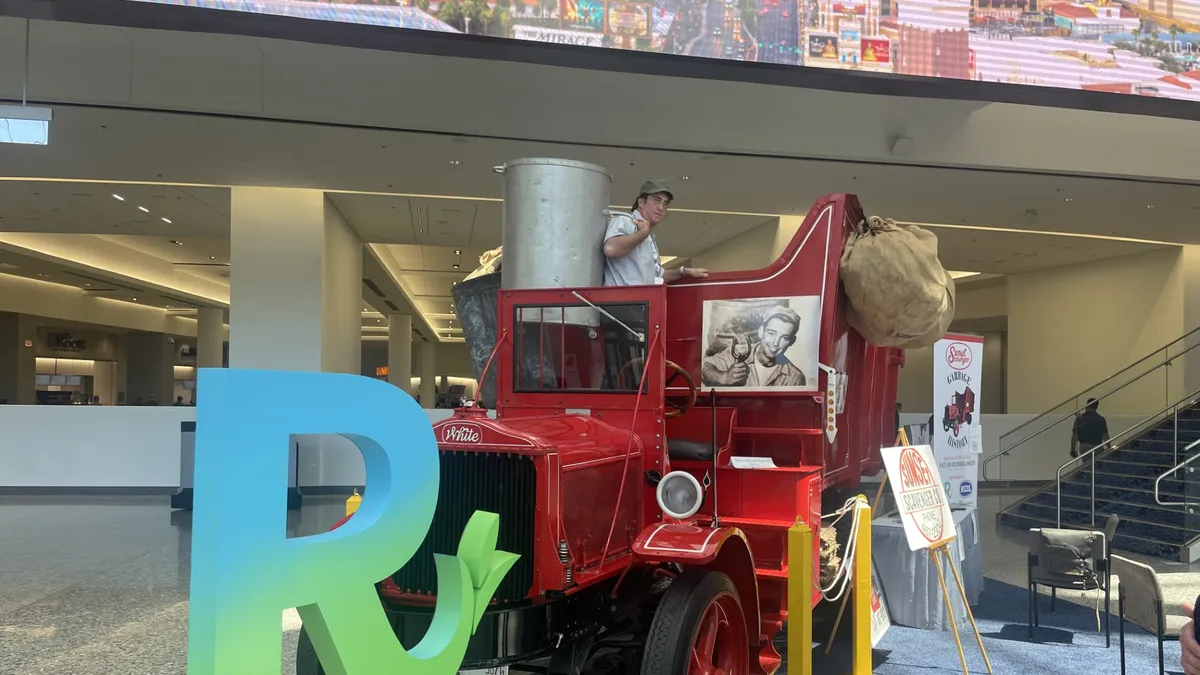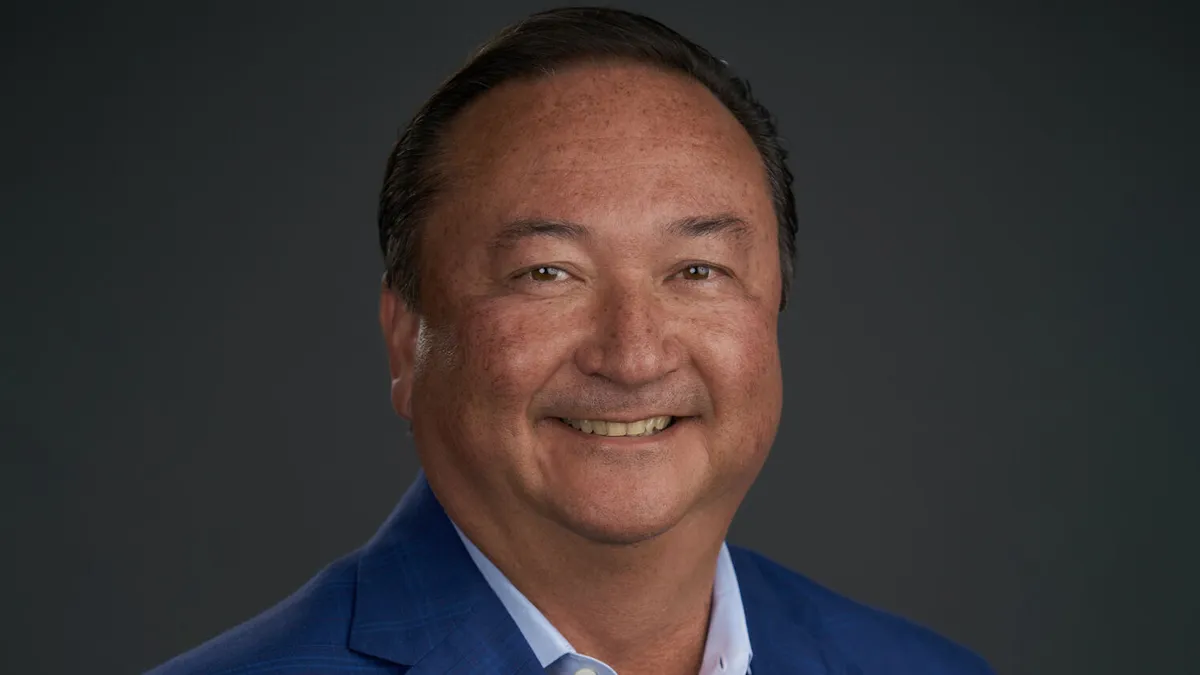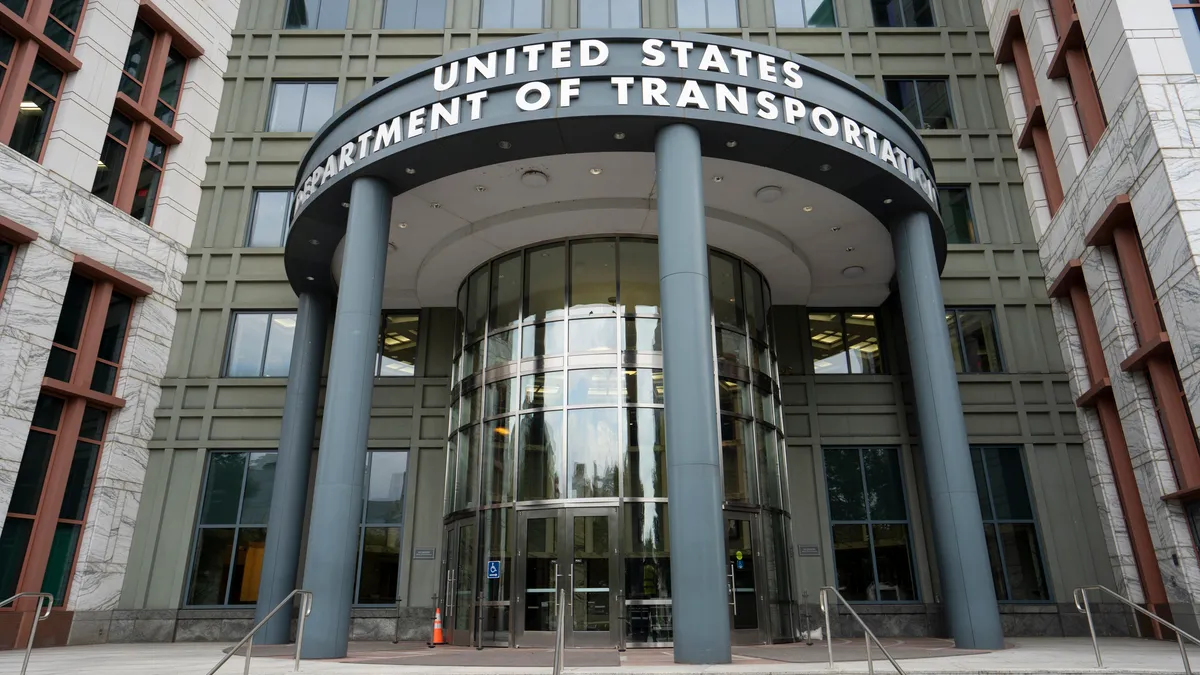WasteExpo was full of shiny new trucks this year, but it was one from the 1920s that stood out among the crowd. The display marked the latest effort to scale a new Waste Industry Historical Society.
The nonprofit group, launched last year by industry veteran Anthony Ricchio, has a museum in Oelwein, Iowa, and is looking to go on the road at more waste events. This was its first time at WasteExpo, with a booth in the lobby that featured a vintage Sunset Scavenger truck known as “Big Red” and a video highlighting industry history in San Francisco.
The society’s mission is “legacy, preservation and education,” with a goal of educating members of the sector and the general public about the waste industry. Its Iowa location has a wide range items from industry companies past and present, tapping into an active online community of people who collect memorabilia.

“Our goal is to not only have a singular location with which to showcase and educate, but also a traveling roadshow that board members can take to different locations to engage the audience and tell the story behind our incredible industry,” read a handout from the group at WasteExpo in Las Vegas.
The group’s board features a range of well-known industry figures, such as National Waste & Recycling Association Board of Trustees Chairman Don Ross. That list also includes Joe Stefanelli, whose family helped grow Recology predecessor Sunset Scavenger.
“We're working up donations for this museum, hoping to grow,” said Stefanelli at the event, adding that the group aims to do this by focusing on not just equipment “but also the stories behind the garbage companies.”
Stefanelli’s great-grandfather, Emilio Rattaro, started collecting waste in San Francisco via a horse and wagon in 1916, which was common for Italian immigrants at that time. He named his company Sunset Scavenger, after the city’s Sunset District, and later organized 91 other companies under that name in the early 1920s. This coincided with San Francisco awarding exclusive collection licenses, which remain in place today.
Leonard Stefanelli became president in 1965. Stefanelli said his father “came off the truck on Friday, was president on Monday because of a revolution they had in the company.”
As shown in the video, Leonard Stefanelli became known for modernizing collection and transfer systems, and also gained broader international recognition. Stefanelli published a book about his life in 2017, called “Garbage: The Saga of a Boss Scavenger in San Francisco.” He died in 2018.
Joe also worked on the truck during the ‘70s, before going on to spend time at other major companies and also working as an actor.
“They have no idea how we used to do it,” he said of younger industry members. “They've got equipment now to where they don't even get out of the truck anymore, but we used to work hard and play hard.”
This involved collection workers carrying packer cans on their backs and often pulling material from well beyond the curb.
“We used to go people's backyards and pack the can through these little narrow passageways. And sometimes they were so narrow, we had to take ... burlap sacks and then dump the garbage on the floor, wrap it up like a stork and then pack it out that way,” he said.
Sunset Scavenger eventually became Envirocal, which was purchased by Norcal in 1987. Norcal rebranded as Recology in 2009.
Recology, which is emerging from a turbulent period, said preserving the antique truck and shipping it to WasteExpo is all part of recognizing the company’s history.
“Over a century ago, this beloved truck marked the shift from waste collection in horse-drawn wagons to our first fleet of trucks. We were thrilled to showcase Big Red alongside the unveiling of the first hydrogen fuel cell-powered refuse truck — a testament to our rich heritage and exciting future,” said the company in a recent Facebook post.
The Waste Industry Historical Society hopes to do similar spotlights on other local companies throughout the country, in connection with regional industry events. Stefanelli said his family’s story is just one of many that could be highlighted.
“There's a lot of people in the industry now that don't even understand or appreciate the history of the companies that they work for,” he said. “What we're trying to do is to build, and have people preserve and become aware of, the history of the businesses that have built this country.”
Disclosure: WasteExpo is run by Informa, the owner of Waste Dive’s publisher, Industry Dive. Informa has no influence over Waste Dive’s coverage.






















